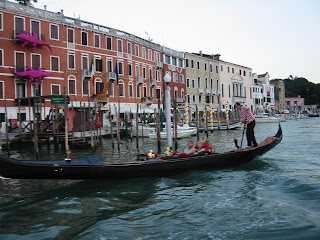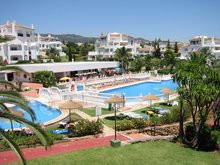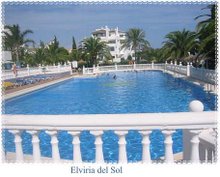




We had THE romantic and stunning dinner at the MET restaurant (Michelin star) in the garden of our hotel
Our Hotel in Venice:
Hotel Metropole:
ORIGINSThe place that is now the Hotel Metropole, has a long historical background.A painting by De Barbari dating back to 1500 documents the existence of a building corresponding to that of the Hotel.In that period the longarea of the Riva degli Schiavoni, anciently named "della Pietà", accomodated one of the major orphanages of Venice, a place of assistance reserved for orphanages of Venice, a place of assistance reserved for orphans and women.Towards the end of the XVII century, the Metropole palace became enriched by a small church where Antonio Vivaldi (1678 - 1741) usually gave lessons to the young girls, who were staying in the orphanage. It was really between 1703 and 1740 that the master composed some of his most celebrated masterpieces: L'Estro Armonico op. III, concerts and Four Seasons "Quattro stagioni".
From 1700 the property endured numerous restoration works. They decided to build a new church, larger than the existing one: the task of this project was entrusted to Giorgio Massari who designed the present Church della Pietà which is adjacent to the Hotel.During 1880, following a further restoration, the building was turned into a hotel. 15 years later Sigmund Freud (the king of psychoanalysts in that period in Venice) stayed here in the "Casa Kirsch", this was than the name of the hotel. Freud wrote to this wife Martha "You won't receive many description. It is not possible to do so, as Venice is so intoxicating".In 1897 the Hotel Metropole appears on the list of the hotels recommended by the "Pocket Guide of Venice and it's interior" by A. Muller.The historical event which has its place in the course of the 20th century also left its mark here: following the modifications imposed to the denomination of the hotels in the name of the italianization, in 1939 the Hotel became Metropoli and from then was for some years transformed into a military hospital, returning to its original use straight after the World War II.From 1970 the Beggiato family turned the Hotel Metropole into a unique hotel in Venice, where the atmosphere based on its history is wisely measured out in a context of research and charm.
WHO WE AREThe Beggiato family, who have managed the Hotel since 1970, skilfully knew how to treasure the story of the building, preserving the structural elements and decorations of the past and creating a welcoming and evocative atmosphere.The style of decoration and fittings verify this, from the restaurant room the "Met" where everything is a reminder of music: between the beautiful original columns of the chapel, musical instruments from different ages are exhibited.The harmonious notes continue through to the adjoining Venetian lounge, with its warm red velvets which are reflected in the antique mirrors, and from there to the windows in the direction of the Bacino san Marco.
The love for art, for antiquities and for beautiful items, has always distinguished the Beggiato family. Notable family collections appear, resplendent in the showcases of the hotel: from differing ages, recuperated with a patient and competent work of visiting cards to that of corkscrews.Unusual displays of antiquities from differing ages, recuperated with a patient and competent work of research by the Beggiato family, have created a refined, subtle and nostaglic atmosphere that is not out place with the air of a "Reserche of lost time".Moreover, Proust was also a famous guest of the Hotel.
From 1700 the property endured numerous restoration works. They decided to build a new church, larger than the existing one: the task of this project was entrusted to Giorgio Massari who designed the present Church della Pietà which is adjacent to the Hotel.During 1880, following a further restoration, the building was turned into a hotel. 15 years later Sigmund Freud (the king of psychoanalysts in that period in Venice) stayed here in the "Casa Kirsch", this was than the name of the hotel. Freud wrote to this wife Martha "You won't receive many description. It is not possible to do so, as Venice is so intoxicating".In 1897 the Hotel Metropole appears on the list of the hotels recommended by the "Pocket Guide of Venice and it's interior" by A. Muller.The historical event which has its place in the course of the 20th century also left its mark here: following the modifications imposed to the denomination of the hotels in the name of the italianization, in 1939 the Hotel became Metropoli and from then was for some years transformed into a military hospital, returning to its original use straight after the World War II.From 1970 the Beggiato family turned the Hotel Metropole into a unique hotel in Venice, where the atmosphere based on its history is wisely measured out in a context of research and charm.
WHO WE AREThe Beggiato family, who have managed the Hotel since 1970, skilfully knew how to treasure the story of the building, preserving the structural elements and decorations of the past and creating a welcoming and evocative atmosphere.The style of decoration and fittings verify this, from the restaurant room the "Met" where everything is a reminder of music: between the beautiful original columns of the chapel, musical instruments from different ages are exhibited.The harmonious notes continue through to the adjoining Venetian lounge, with its warm red velvets which are reflected in the antique mirrors, and from there to the windows in the direction of the Bacino san Marco.
The love for art, for antiquities and for beautiful items, has always distinguished the Beggiato family. Notable family collections appear, resplendent in the showcases of the hotel: from differing ages, recuperated with a patient and competent work of visiting cards to that of corkscrews.Unusual displays of antiquities from differing ages, recuperated with a patient and competent work of research by the Beggiato family, have created a refined, subtle and nostaglic atmosphere that is not out place with the air of a "Reserche of lost time".Moreover, Proust was also a famous guest of the Hotel.












Ingen kommentarer:
Legg inn en kommentar